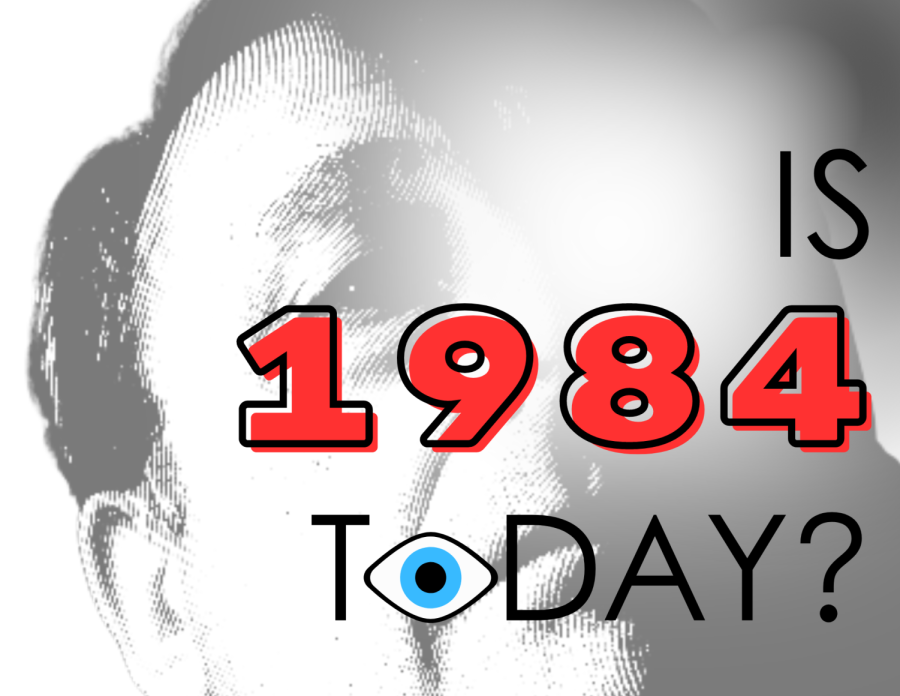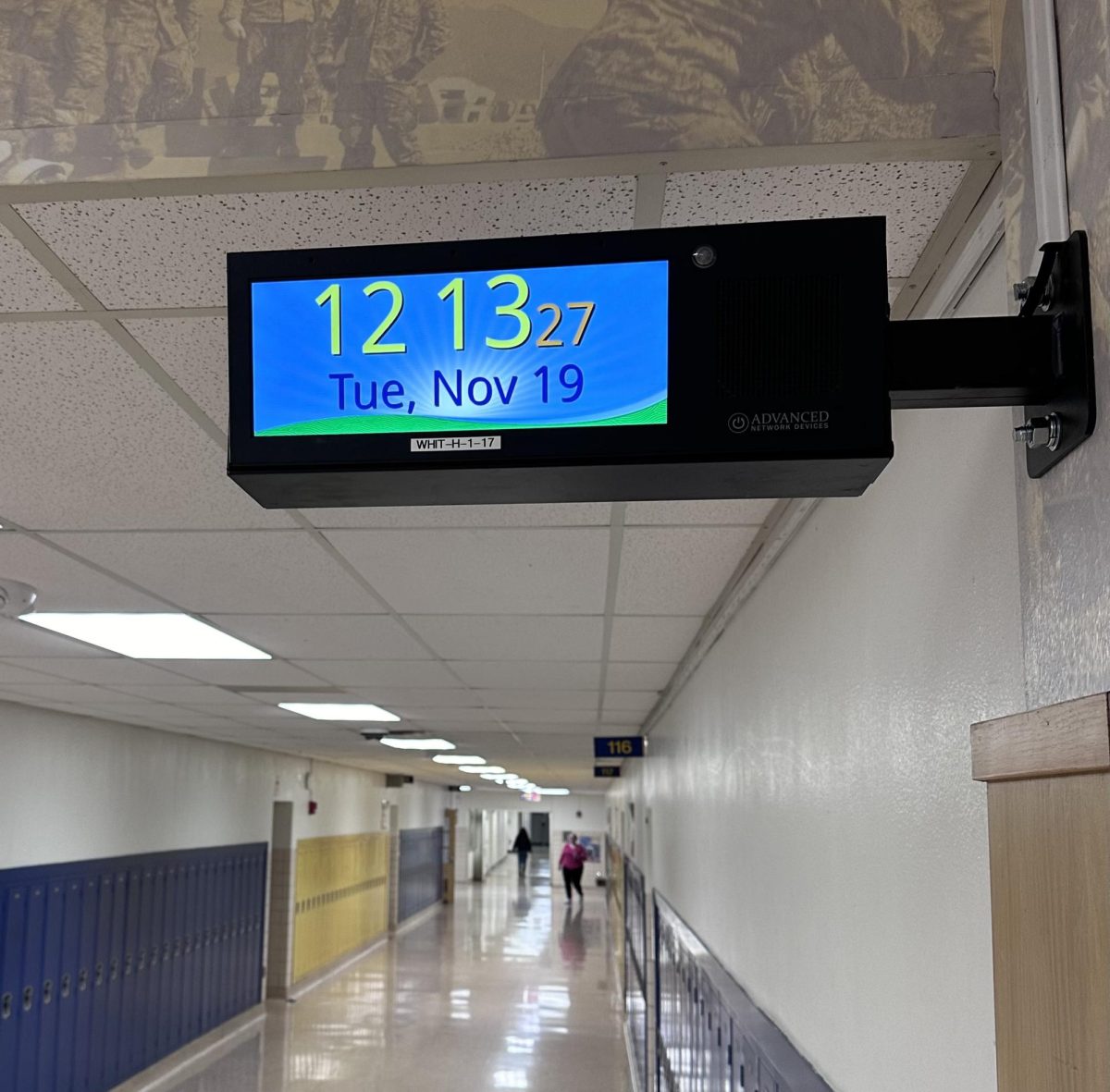1984 in 2023: When Fiction Reflects Reality
Freshman Honors English students recently read 1985 by George Orwell. The classic dystopian-futuristic novel, written 74 years ago, draws us closer and closer to a similar reality then ever before.
March 17, 2023
Many works or literary fiction endure the test of time and quite a few of those classics have begun to resurface with many younger generations considering them favorites. George Orwell’s 1949 dystopian fiction novel ‘1984’ explores the distant future; however, it holds haunting themes that are scarily becoming our reality.
One of the most well known quotes from ‘1984’ “Who controls the past controls the future. Who controls the present controls the past ” is a chilling reminder that history is written by the victors, the people who are able to talk about what’s happened. Those people are able to leave out as much information as they want and change what they want.
Censorship is a major problem not only in the novel written in the 1 950’s but also currently in 2023. The book multiple times mentions how the government withholds information from the general public and they don’t even notice. Winston, the main character, talks about how his role is to cover up the past and change certain information.
950’s but also currently in 2023. The book multiple times mentions how the government withholds information from the general public and they don’t even notice. Winston, the main character, talks about how his role is to cover up the past and change certain information.
“Governments went from spectators in the digital revolution to sophisticated early adopters of advanced technologies,” John Gimore, entrepreneur and civil libertarian, says “That allowed them to monitor journalists and direct the flow of information coming from them.”
Journalists even more everyday are being silenced from educating people and speaking the truth. The more of an audience that journalists acquire the more people are going to be informed; however with that the higher ranked/governments are going to want to censor those writers more.
“It was terribly dangerous to let your thoughts wander when you were in any public place or within range of a telescreen,” Orwell expresses in his novel. “The smallest thing could give you away.”
In the world of Orwell’s 1984, civilization has been ravaged by world war, civil revolution leaving a reformed shell of the United Kingdom known as Airstrip One. The setting is a province of Oceania. One of three totalitarian super-states. The technology in Oceania is making it so that the civilians can’t express what they feel. Much how journalists now are unable to speak themselves and the way they feel about things going on in the world. If the people in Oceania even think something different than what the government thinks, then they will be severely punished.
“This is not your classic censorship, where they put a soldier in the door of the newspaper and assault the journalists,” Calzadilla, former investigative journalist, told the writers for The Atlantic. “Instead, they buy up the newspaper, they sue the reporters and drag them into court, they eavesdrop on your phone and email communications, and then broadcast them on state television. This is censorship for the 21st century.”
In 1988 a simple high school ended up making a landmark supreme court case, Hazelwood School District v. Kuhlmeier (1988). Hazelwood East High School’s principal deemed that two articles found in the school newspaper were “inappropriate” and he barred them from publication. The students who wrote these articles took the principal to court for violating their first amendment rights. This fight led to precedent and a continual fight for student press rights. Technology however is helping to aid those who are wanting to silence others.
“He thought of the telescreen with its never-sleeping ear. They could spy upon you night and day, but if you kept your head you could still outwit them,” Orwell states, “With all their cleverness they had never mastered the secret of finding out what another human being was thinking.”

Between The higher ranked/governments trying to silence their people not only in Orwell’s “1984” written in 1949 but also in our current times, 2023. A few other themes are coming to light, one being the advancement of technology aiding in censorship.
“The advance of technology has not only provided more outlets for speech,” The U.S International trade Commision states in a report “but also created more technical levers to suppress speech.”
This report had found that a few foreign governments have employed technology to coerce compliance with censorship policies. Further proving that governments try to suppress the people who want their voices to be heard.
“Freedom of speech and freedom of action are meaningless without freedom to think,” Bergan Evan states, “And there is no freedom of thought without doubt.”






